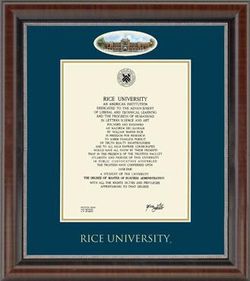Think of this as Volume 16, Number 11 of A-Clue.com, the online newsletter I've written since 1997. Enjoy.

One is capability. The other is cost.
Health care resisted automation for decades after the PC. It only began succumbing (and it's a continuing struggle) after costs got so out-of-control that care became unaffordable for increasing parts of the middle class.
It didn't matter to doctors that PCs and networks could distribute data faster than their secretaries. Automation threatened their control of the customer. Not just the retention of the account, but the choices they made on treatment, their autonomy. Their power.
Some types of technology were acceptable. Systems that made it easier to get paid, new machines, these were readily accepted. But collecting and moving patient records didn't really start until the 2009 stimulus provided the money and set a firm deadline for the industry – about 2 ½ years from now. And even now progress is agonizingly slow, with doctors, clinics and hospitals making, not tech choices, but business choices. The winners in the Electronic Health Record market turn out to be the insurers and hospital networks, who are enhancing their own control over both patients and physicians.
Education has been much the same. Even after the Internet, and wi-fi, broke the cost barrier for networked education, principals and administrators have resisted technology fiercely, for the same reason doctors did.
It's about control. If kids have network access, they can learn things that aren't in the textbook. They may even learn that teachers are engaging, not in education, but in political indoctrination, enforced from on high. The smart ones might resist and get away.
The same is true, doubly true, in higher education. Even though networks make it possible for anyone to learn anything at any time, credentialism has locked kids into rote classrooms taught by unsympathetic drones at ridiculous prices.
Teacher-controlled education is as unsustainable as doctor-controlled health care.

Or can they?
Stanford has now joined MIT in offering its courseware to the world at large. All that's missing from both schools' offerings are scaled support and full degree programs, credentials in other words, which for-profit competitors like Phoenix, Walden and Capella, as well as some public schools like Troy State and Central Michigan have long offered.
It's these low-end competitors that have forced a response from the high end of the education market. As in many technology revolutions, both sides are squeezing the middle. Once these high-end institutions gain the confidence to turn courses into credentials, lots of teaching-driven schools will go to the wall – or be assimilated.
Real universities aren't about teaching at all. And some of the best schools in the country don't yet understand this reality. Universities are about research. In the 21st century they're about extending the frontiers of knowledge, not about transmitting it backward. This latter job can be automated, and mass marketed quickly. By 2020 any university that's not primarily a research institution will go the way of the dodo. Graduate programs will be all.
The raw material for textbooks, and coursework, is of course the academic paper. And that market is also about to be transformed by new business models, aimed at opening access and doing away with middlemen.
Squeezing out margins is the game, although it's done in the name of improving access.

The problem is not that the iPad and Internet threaten to swallow the textbook market. The problem is that they change the very definition of what a textbook is and what it can do. Textbooks, at every level, are going to become courses in their own right, and much faster than we imagine.
What does this mean? For one thing, it means a lot more home schooling, with parents empowered to deliver a better education experience to their kids than the local school can offer. A more customized education as well.
In education, credentials play the same role that doctor-patient confidentiality plays in medicine. They're designed to prevent and preclude change. But nothing beats market forces, given time. Education is finally about to undergo a revolution, and my grandkids will be the better for it.










